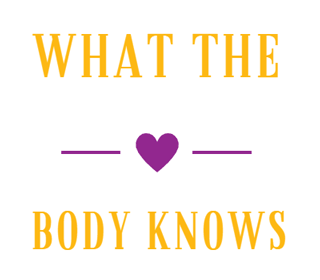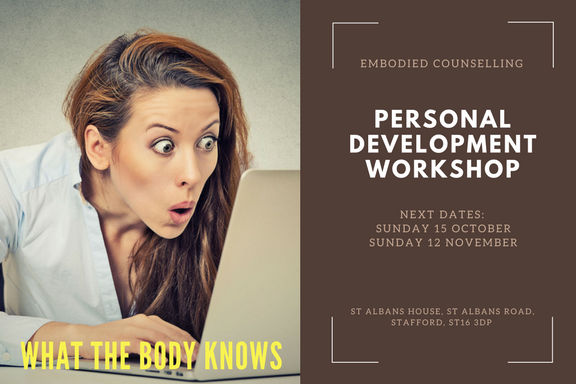Our bodies know more about our happiness and the things that have happened to us in our lives than our conscious minds are aware of. Pesso Boyden system psychotherapy can help you tap into this wisdom.
The body holds the negative
We may notice tension or tightness, and have no awareness of what’s triggered it. Our faces and other areas of our body hold onto negative experiences and emotions. Without knowing it our expression may show a subtle sadness, anger or fear. Certain areas of our bodies are more highly enervated than others: in particular the face (eyes, jaw, and throat), hands, abdomen (diaphragm), feet, and pelvic area. They are very quick to tense up and slow to release.
Emotional tension at its root
All physical tension has emotional tension at its root. We think of someone who upset us and our jaw tenses, we see a place where we were once unhappy and lonely and our throat tenses around a lump, we might smell something that takes us back to a fearful situation and our stomach feels like a knot. The trouble is, we are often not consciously aware of the link between the sense and the emotional reaction. So we are left stuck or consumed with the emotional reaction.
Feeling helpless
This isn’t a problem if the emotions are positive or transcendent; such as love, joy, or awe. But when the cycle is negative we are left dis-empowered: which builds on the sense of shame. For example, two friends of mine recently went for a walk around some gardens, it was sunny and warm and the two friends were chatting and enjoying themselves. They walked past a gardener watering a bloom of pink roses, they saw the man carefully tending to the flowers and smelt the strong smell of the roses. As they continued the one lady felt elated, and joyful, yet her friend started to feel inexplicably sad and a little anxious.
These two had done a lot of self-development work and got interested in what was going on for themselves. When they got back they talked about this and one friend realised that seeing the gardener had reminded her of her childhood and her father in their garden when she was a child, a very happy time for her. The other lady realised that the smell of pink roses and the blooms reminded her of when her first husband told her he was leaving her for another woman, he had taken the opportunity on a walk in the local park. She remembered the incredible sadness and fear she felt on hearing this from a man she still loved.
Lack of awareness
For many of us, we have no awareness of the processes, and the sadness or the fear may stay with us for a while; it seems to come over us for no reason. Deepening our sense of shame, perhaps.
Sometimes our bodies speak to us by way of persistent headaches, sleeplessness, stomach disorders, numbness or a constantly tense muscle that gives us pain somewhere. Our bodies are reacting to unconsciously re-remembered past experiences that we haven’t fully processed and are loaded with negative emotions such as anger, shame and guilt. In an attempt to self-soothe these painful emotions (and even to continue to repress them) we often turn to compulsive eating or drinking patterns which aren’t the best for us in the long term.
Learning to develop awareness
If we can learn to increase our awareness of what our minds are processing and what our bodies are ‘telling’ us in the moment to moment wisdom of the felt sense inside, we can begin to have more choice about how we react to it. We can even begin to understand what it is that our bodies are re-remembering. It is because the origins are usually traced back to unresolved early memories (before the age of 7) that we get stuck. Not necessarily because the memories are terrible or traumatic. But because at that age our brain has only developed to the second level of its three part structure: the most important ‘processing’ part of our brain hasn’t yet come on line. The cortical brain only starts development around the age of 7 years and is only fully developed into our late teens or older.
Infantile neurology
So if little 4 year old Charlie has a fight with his older sister who is teasing and being mean to him and is provoked into a tantrum and hits her with a plastic track, his mum smacks him so hard he cries and he is sent to his room for a couple of hours. He doesn’t fully understand that the punishment he gets is for his behaviour.
He fails to take away a message that anger and aggression are natural little boy reactions; yet need to be contained in a loving and accepting way by sensitive parents who don’t have their own issues with anger. He internalises a sense that he is a ‘bad boy’: along with the guilt and fear that are linked to the anger.
Adult consequences
And this belief impacts on adult Charlie who is now afraid of his own anger, squashes it, becomes the nice guy desperate to please everyone (it appeases the guilt). Doesn’t do conflict and lacks assertiveness in relationships (fears the ‘consequences’ if he stands up for himself so tends to be walked over), yet has rare moments when he completely loses it, leaving him bewildered and scared.
Pesso Boyden system psychotherapy and healing
If we can take Charlie’s 49 yr old adult brain back to the event at 4 his, now online, cortical ‘executive’ functions can make meaning to resolve the event and when that happens the negative beliefs and emotions are resolved. And Charlie is free, he has more choice in how he reacts and behaves. Hereby the wisdom of the body through the ‘felt sense’ informs the higher functions of the cortical brain, new meanings are made and Charlie is free from past patternings. In a way, Charlie’s brain has been ‘rewired’.
Many of us may not get much in the way of difficult symptoms but we remain unaware of what wisdom is held in our bodies. If we could learn how to bring this to the surface and process things it will enrich our lives.
Pesso Boyden therapy workshops
Sue is running half day experiential workshops designed to help us look at what our bodies can tell us about ourselves. The aim is to raise insight and self-awareness. In a small, safe groups (6-8 people) we’ll use some gentle and powerful Pesso Boyden experiential activities to look at what surfaces from our bodies and what meaning we make in the world.
Read more about PBSP here.
Find out more about our PBSP modality here
READ MORE



